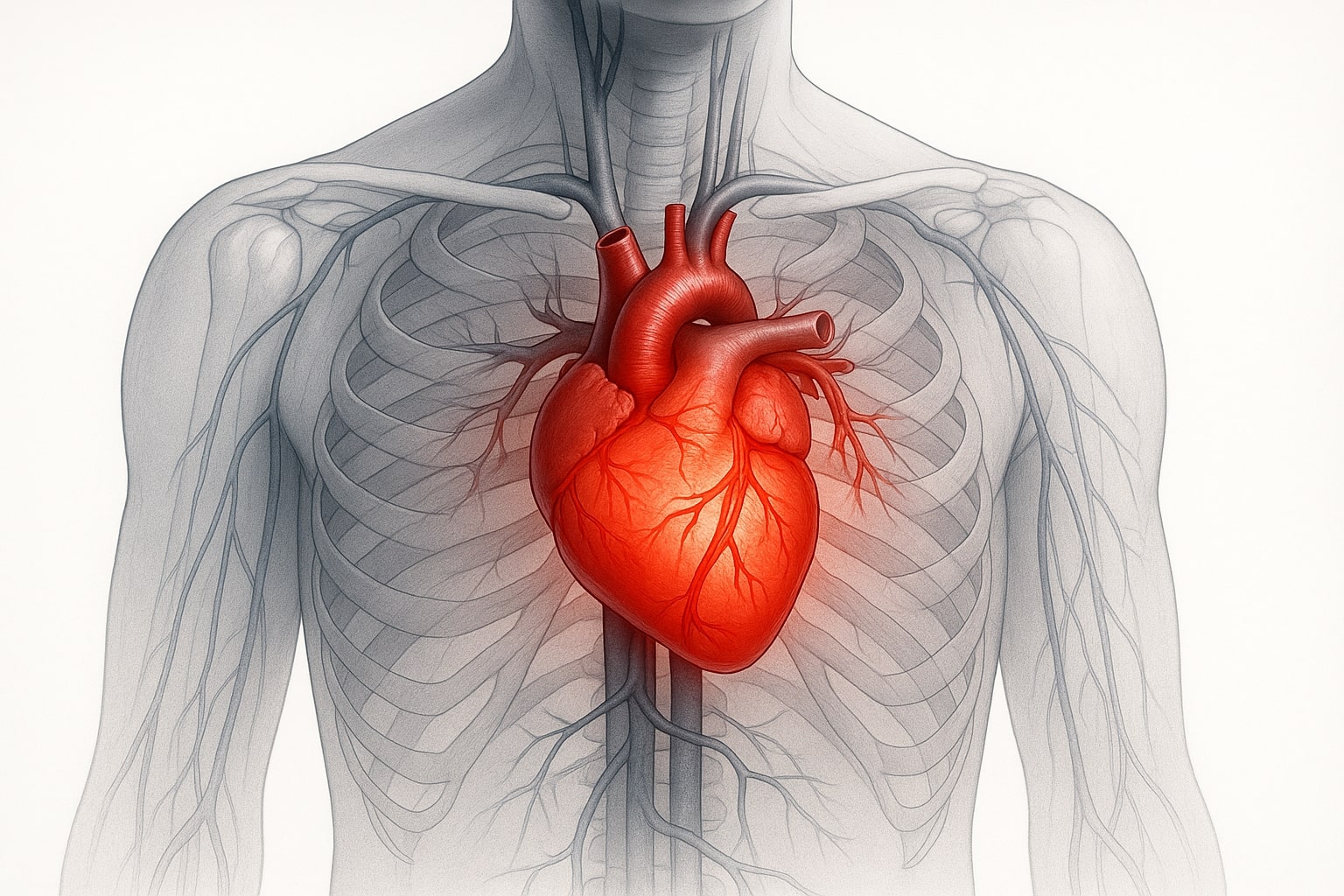- The Global Heart Failure Crisis
- 1. Excessive Salt Intake – The Hidden Danger in Your Pantry
- 2. Sedentary Lifestyle – Sitting Your Way Into Heart Trouble
- 3. Smoking and Excessive Alcohol – A Double Blow to the Heart
- 4. Chronic Stress and Poor Sleep – The Silent Strain
- Why This Matters Now
- The Bottom Line
- Sources
The Global Heart Failure Crisis
The World Health Organization (WHO), the World Heart Federation, and the American Heart Association have confirmed it: heart failure is a global pandemic. At least 26 million people around the world are living with it right now, and that number is climbing fast.
Heart failure doesn’t mean the heart suddenly “stops.” Instead, it means your heart isn’t pumping as strongly as it should. Without enough oxygen-rich blood, your body begins to struggle. Simple things — like walking up the stairs, carrying groceries, or even lying down — can leave you breathless and exhausted.
Doctors warn that while medications and treatments exist, your daily habits can make or break your heart’s future. In fact, four common lifestyle choices are now directly linked to the rise in heart failure. And the good news? They can all be changed.

1. Excessive Salt Intake – The Hidden Danger in Your Pantry
Salt isn’t just on your fries. It hides in canned soups, packaged snacks, deli meats, and frozen dinners. Too much sodium makes the body retain water, raising blood pressure and forcing your heart to work harder.
The American Heart Association once recommended up to 4,000 mg of sodium daily, but guidelines have since shifted to encourage 2,000–3,000 mg max, and less than 2,000 mg for patients already struggling with heart issues.
Tip to break the habit: Cook fresh meals at home, swap salt for herbs and spices, and always check labels for sneaky sodium.

2. Sedentary Lifestyle – Sitting Your Way Into Heart Trouble
Modern life keeps us chained to desks, couches, and car seats. But too much sitting stiffens arteries, slows circulation, and packs on weight — all deadly for the heart.
Doctors recommend at least 150 minutes of moderate exercise or 75 minutes of intense activity per week. Even short walks, stretching, or a bit of dancing can drastically reduce your risk.
Tip to break the habit: Stand every hour, take the stairs, and find joy in movement — whether it’s cycling, swimming, or playing with your kids.

3. Smoking and Excessive Alcohol – A Double Blow to the Heart
Smoking narrows blood vessels and cuts oxygen flow. Alcohol weakens heart muscle and disrupts rhythm. Together, they’re a deadly combo.
For decades, studies have linked smoking to heart attacks and strokes, while heavy drinking can directly cause alcoholic cardiomyopathy (a type of heart failure).
Tip to break the habit: If quitting feels impossible, lean on support groups, hotlines, or medical therapies. And when it comes to alcohol — moderation is key. That means no more than one drink daily for women, two for men.

4. Chronic Stress and Poor Sleep – The Silent Strain
Stress raises cortisol, disrupts metabolism, and pushes blood pressure higher. Pair that with sleepless nights, and your body never gets the chance to repair itself.
Studies show chronic stress and poor sleep fuel obesity, diabetes, and high blood pressure — all risk factors for heart failure.
Tip to break the habit: Create a nightly wind-down routine, ditch screens an hour before bed, and aim for 7–9 hours of sleep. Stress-busting habits like deep breathing, yoga, or journaling can also reset your nervous system.
Why This Matters Now
Doctors say the rise in heart failure isn’t inevitable. Many patients can achieve remission through lifestyle changes. But ignoring these four habits is like “slowly sawing away at the very pump that keeps you alive.”
This isn’t just about living longer — it’s about living better. Imagine climbing stairs without gasping for air. Playing with your grandkids without collapsing in fatigue. Waking up rested instead of drained.
The Bottom Line
💔 Your heart beats about 100,000 times per day. Every single beat counts.
And while heart failure is a lifelong condition, breaking free from these four habits can give your heart the fighting chance it deserves.
➡️ The choice is yours: Keep fueling the problem — or give your heart the care it desperately needs.
Sources
World Health Organization – Cardiovascular diseases (CVDs)
World Heart Federation – Heart Failure Fact Sheet
American Heart Association – Sodium and Heart Health
ScienceDirect – Global Burden of Heart Failure Study
Heart Failure Society of America – Lifestyle and Self-Care Guidelines








